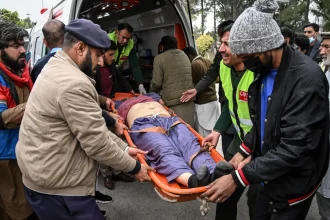The government of Chad has announced that it will no longer issue visas to United States citizens, following a new travel ban approved by US President Donald Trump.
This action, which the Chadian government called “reciprocity,” is in response to Trump’s ban on travellers from 12 countries, including Chad. The new US travel ban will begin on Monday, June 9.
Chadian President Mahamat Idriss Déby Itno stated that the decision to suspend US visas was made to protect the country’s dignity and pride.
“Chad has neither planes to offer nor billions of dollars to give, but Chad has its dignity and pride,” Déby wrote in French on his Facebook page on Thursday.
The new US ban blocks entry from several African countries, including Chad, Congo-Brazzaville, Equatorial Guinea, Eritrea, Libya, Somalia, and Sudan, as well as Afghanistan, Myanmar, Haiti, Iran, and Yemen.
Another group of countries, including Burundi, Sierra Leone, Togo, Cuba, Laos, Turkmenistan, and Venezuela, will face limited visa access.
In a video posted on X (formerly Twitter), Trump said: “We will not allow people to enter our country who wish to do us harm.”
He also said the list could be changed if countries improve their security systems, and that more countries might be added if new threats appear.
The White House described the order as “common-sense restrictions” meant to “protect Americans from dangerous foreign actors.”
Chad’s Foreign Minister, Abdoulaye Sabre Fadoul, told AFP news agency that his country was shocked by the ban and strongly disagreed with the US linking Chad to terrorism.
“This completely disregards Chad’s commitment and results in fighting terrorism,” he said.
The African Union also raised concerns, warning that the travel ban may damage diplomatic relationships. It called for better discussions between the US and the affected countries.
While Chad showed strong opposition, Somalia responded differently. Its ambassador to the US, Dahir Hassan Abdi, said Somalia is ready to work with the US to resolve any issues.
“We value our longstanding relationship with the United States,” he said in a statement.
In Eritrea, many citizens are worried. In an interview with BBC, an Eritrean man said: “As Eritreans, we’ve already suffered under our regime, and now we’re facing the same hardship under Trump’s policies.”
Another Eritrean woman expressed her fear that she and her children may never be able to join her husband in the US. “We’ve waited so long and done everything legally, but now we’re left in limbo,” she said.
Trump’s latest ban includes exceptions for athletes taking part in international sports events like the 2026 FIFA World Cup and the 2028 Summer Olympics.
The new rules will not cancel visas that were already issued, and people with dual citizenship will not be affected.
This ban is similar to the one Trump signed in 2017 during his first term. That earlier order, which included several Muslim-majority countries, was heavily criticised and challenged in court. However, it was later upheld by the US Supreme Court in 2018 after being revised.
President Joe Biden had cancelled that ban in 2021, calling it “a stain on our national conscience.”
Now, Trump’s new ban has brought back concerns, especially in Africa, where seven out of the 12 banned countries are located. Many fear it could make life even harder for those trying to reunite with family or flee conflict zones.











